How to Find Out Your Blood Type
Blood plays a huge role in the functioning of our body. Our blood type can determine how we deal with some illnesses. This is why it’s important to know exactly which blood type you have.
We at 5-Minute Crafts have found out which blood types there are, if they are inherited, and how to know for sure which blood type you have.
What is a blood type
Blood is composed of blood cells (red blood cells, white blood cells, and platelets) that are suspended in blood plasma. Red blood cells have their own individual characteristics that scientists use to systemize different blood types. The ABO system is the most famous one.
In the ABO system, there are 4 blood types depending on the specific antigens in red blood cells and certain antibodies in the plasma.
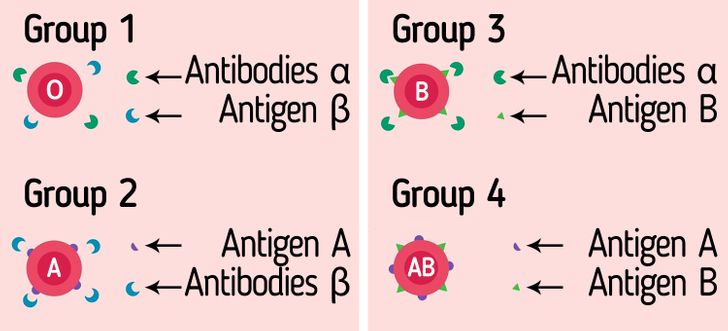
-
Group 1 O (I): There are no antigens on the red blood cells and there are antibodies to both antigens α and β, in the plasma.
-
Group 2 А (II): There are antigens A on the red blood cells, and in the plasma, there are antibodies β to antigens B.
-
Group 3 B (III): There are antigens B on the red blood cells, and in the plasma, there are antibodies α to antigens A.
-
Group 4 AB (IV): There are antigens A and B on the red blood cells, but there are no antibodies in the plasma.
There’s also the Rh blood group system that is about the presence or absence of the Rh(D) antigen. It has an influence on the possible body immune system response that appears during a blood transfusion, organ transplantation, or during pregnancy. If this antigen is in the blood, a person is Rh-positive, and if there’s not antigen, a person is Rh-negative.
How a blood type can be inherited
A person’s blood type is determined by their parents’ genes. If you know the blood types of your parents, you can easily determine your own blood type.
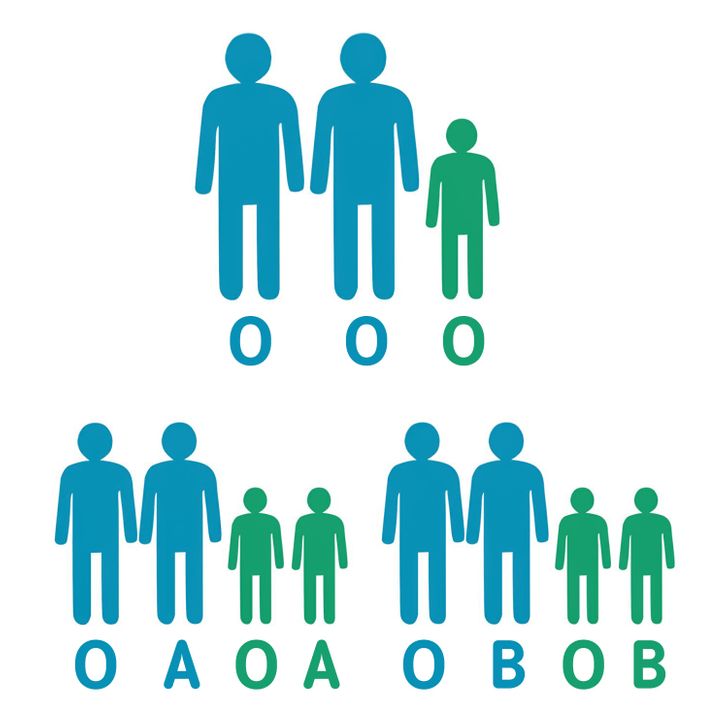
-
If both parents have blood type O, the children will have this blood type.
-
If one of the parents has blood type O and the other has blood type A, the child will have one of them. The same is true if one of the parents has blood type O, and the other has blood type B.
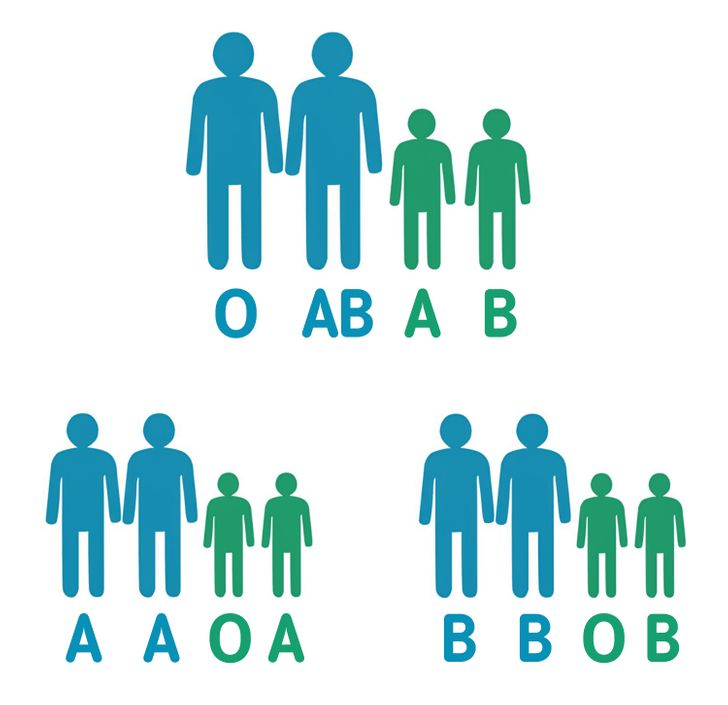
-
If one of the parents has blood type O, and the other has blood type AB, the children will have other blood types.
-
If both parents have blood type A, the children will have either blood type A or blood type O.
-
If both parents have blood type B, the children will have blood type B or blood type O.
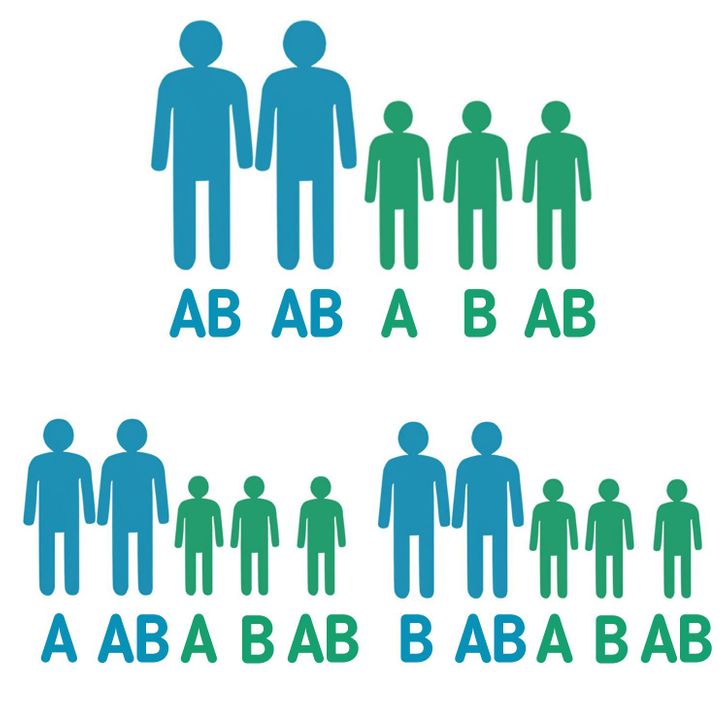
- If one of the parents has blood type AB, and the other has AB, B, or A, the children might have any blood type but O.
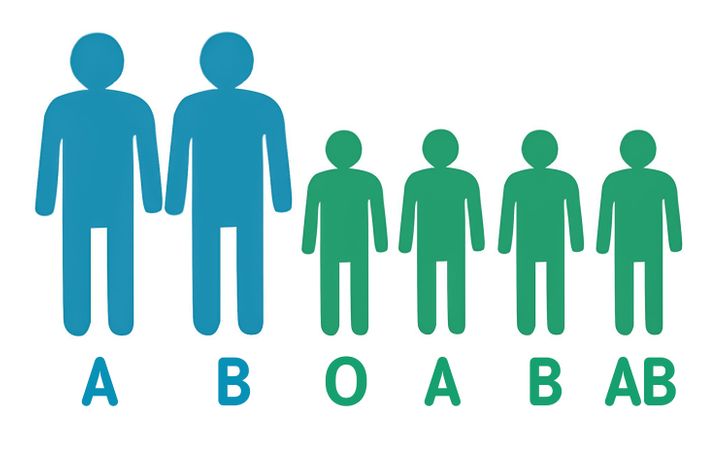
- If one of the parents has blood type A, and the other has blood type B, the children can have any blood type.
Visiting a doctor
You can get more specific information about your blood type by getting tested at any medical lab. It is possible that your blood type is already in your medical record. So, you just need to contact your GP.
Blood donation
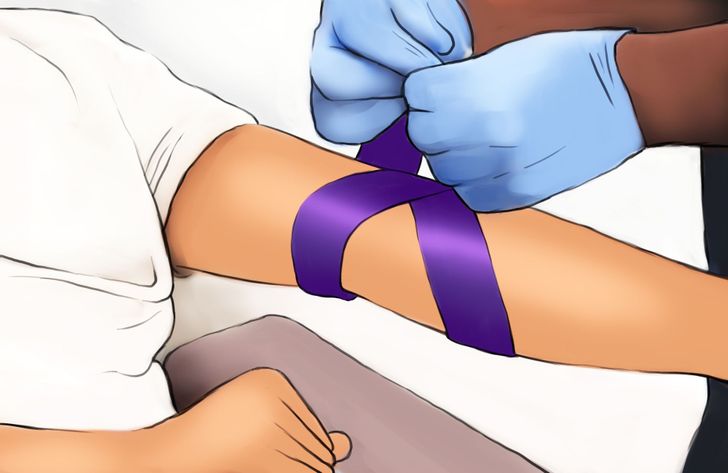
By donating blood, you can find out your blood type and your Rh factor: this information will be written in your medical record.